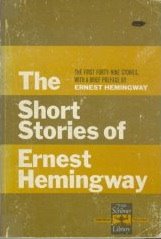 Of the many people who write about food, I enjoy reading Michael Pollan the most. I'm biased though, because it was his Omnivore's Dilemma that got me all up in arms over food in the first place. And since that book has literally changed the way I think about food (hint, read it! read it!), naturally I was drawn to this one, which after my wife got it for me as a gift, I had absolutely no excuse to read.
Of the many people who write about food, I enjoy reading Michael Pollan the most. I'm biased though, because it was his Omnivore's Dilemma that got me all up in arms over food in the first place. And since that book has literally changed the way I think about food (hint, read it! read it!), naturally I was drawn to this one, which after my wife got it for me as a gift, I had absolutely no excuse to read.Written years before his foray into how food gets from farm to plate, The Botany of Desire feels like the natural precursor to Omnivore's Dilemma. In it, you are introduced to Pollan's love of plants, gardening, and his witty and smart writing that keep you engulfed in what you are reading. Here, Pollan follows four plants, and makes the argument that they have shaped human culture just as much as we've shaped them, thus exploiting us humans (monkey sounds here) for their own selfish desires.
First there's the apple, whose five seeds in each core will grow trees with apples that taste nothing like their parent, found their way around the country in the form of Johnny Appleseed, who actually was a real person, and exploited the pre-industrial desire for sweetness through grafting, and became the successful snack of pre-sugar times. Pollan then delves into the lure of the beauty of the lily and its power to start a war over its cultivation. He writes about his own short experience growing marijuana and the intoxicating power of that plant, as well as its ability to overcome legal boundaries and still be the largest cash crop of the current market. And finally, he investigates the control of a crop like the potato, a crop that was so easy to grow it fed and wiped out a the Irish nation when it caught some deadly fungus. Pollan experiments with growing a genetically modified potato and, through that, explores an interesting avenue of developing bio-science that scares me to think what will be next.
Written with a love of plants beyond that of a simple passerby, one can tell that Pollan eats and breathes this stuff. He contemplates large amounts of his day to growing and thinking about food, which ultimately lends a biased argument to his claim that plants shape us as much as we shape them. I felt like a large amount of the book was a history lesson for each of the plants with the same conclusion: it was all the plant's doing.
I, on the other hand, don't think we're all that innocent. It's true that, above ourselves, there is a delicate game of survival of the fittest going on between plants satisfying our desires and moving on because of that and, over time, becoming a dominant species. But I'd be hard-pressed to be convinced that an apple hypnotized some pioneer into grafting hundreds of trees to meet its own selfish demands.
Still, Pollan's book is an excellent read, and it only gets better as the pages turn. It's kind of like good wine, that other plant that's rooted itself into nearly every culture on this planet, it gets better with age. I'm a huge fan of Pollan, if you can't tell, I gobbled this book up, and I'm hungry for more still. Reading Pollan is like dining at an organinc, local ingredients restaurant. If you haven't done it yet, you should. Just to try.


No comments:
Post a Comment